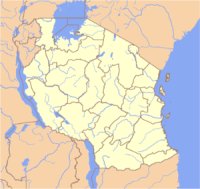SMS for Life results have Tanzania dreaming silicon dreams


The concept was simple, to use SMS messaging to improve the management of malaria drug stocks in remote villages.
An automated SMS goes out each week reminding clinics to take inventory, and the results are sent, also using SMS, to a central database from which re-orders can be stocked.
The same technology that your teenager is using to drive you crazy is now apparently saving lives by the thousands in the African bush. Results are even better than anticipated:
- The chance of running of of vital malaria treatments was cut three fold.
- In one area, Lindi Rural, stock-outs were completely eliminated in eight weeks. At the start of the project 57% of clinics were routinely out of stock. Other districts also cut stock-out rates in half.
- A half-day training session for health workers resulted in a 95% response rate to the text messages.
IBM has already capitalized on this success, signing a deal with the Tanzanian government covering IT in schools and research facilities throughout the country. Tanzania is talking up the idea of a "Silicon Valley" environment around its three year old University of Dodoma, which is in the center of the country.
Big talk. Big dreams from what began as a demonstration project aimed at improving Novartis' sales. I happen to be a fan of big dreams.
Novartis is also happy, by the way. "This solution, which is scalable and available now, can be implemented quickly and at relatively low cost in any country to track any medicines,” said CEO Jim Barrington.
"“Malaria is a preventable disease but without the right treatment it is life threatening and kills 60,000 to 80,000 people a year in Tanzania because drugs supplies are inadequate," explained Vodafone's Joaquim Croca, which got traffic and valuable PR from the trial.
"The results of this collaborative program demonstrate that the use of simple technology, such as text messaging, can stimulate behavioral change, improve efficiencies and quite literally, save lives."
All true. If simple technology can provide these results, what can complex technology do? Tanzania wants to find out.